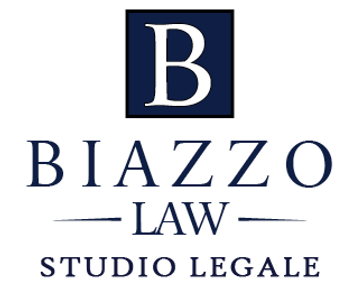What to do if the Police or ICE Stop you in Public
- corey7565
- Jul 6
- 4 min read
First Amendment
The First Amendment of the U.S. Constitution states in part, quote, “Congress shall make no law abridging the freedom of speech, or of the press; or the right of the people peaceably to assemble, and to petition the Government for a redress of grievances.
The First Amendment applies to any person that is present within the physical United States, regardless of whether they are a U.S. citizen.
First Amendment Filming
While the U.S. Supreme Court has not yet addressed this issue, several U.S. Circuit Courts of Appeals have found that taking photos and filming in public places is also protected First Amendment Conduct.
The Seventh Circuit Court of Appeals for example, in a case called Am. C.L. Union of Illinois v. Alvarez, in 2012 held quote, “the act of making an audio or audiovisual recording is necessarily included within the First Amendment’s guarantee of speech and press rights as a corollary of the right to disseminate the resulting recording.”
Also know that the police generally cannot search the contents of your phone or make you delete contents according to the U.S. Supreme Court’s 2014 ruling in a case called Riley v. California.
Police Encounters
If you are approached by Police or ICE, it’s always best to remain polite, respectful and even keeled. You are protected by the Fourth Amendment of the U.S. Constitution from unreasonable searches and seizures of your person and your belongings. And remember you are permitted to film your encounter, as long as you do not obstruct lawful police or ICE actions, such as lawfully arresting another individual in your vicinity.
Fourth Amendment
The Fourth Amendment states in part, quote, “The right of the people to be secure in their persons, houses, papers, and effects, against unreasonable searches and seizures, shall not be violated.”
The Fourth Amendment applies to any person that is present within the physical United States, regardless of whether they are a U.S. citizen.
Police Stops and Detentions
If you are stopped or detained by police, be polite, don’t resist, and ask, “Am I free to go?” Remember, until you ask to leave, being stopped is considered voluntary.
If the police respond, “no, you are not free to go”, then you are being detained. If you are being detained, politely ask what crime you’re suspected of committing.
In order to detain you, police or ICE must have a reasonable suspicion that you are engaged in or about to engage in criminal activity. Generally, the authority of ICE to detain you only relates to violations of U.S. federal Immigration law. That reasonable suspicion must be based on specific facts that the police can articulate. Police and ICE cannot detain you based solely on “inchoate and unparticularized suspicions or hunches.” There must be “some minimal level of objective justification” for making the stop.
Keep in mind though, if you feel that you are being unlawfully detained, ask to contact an attorney and let them sort it out.
The U.S. Supreme Court has stated in a case called United States v. Sokolow in 1989, quote, “The concept of reasonable suspicion, like probable cause, is not “readily, or even usefully, reduced to a neat set of legal rules.” In evaluating the validity of a stop we must consider “the totality of the circumstances the whole picture.”
Know that if you are stopped, if officers have a reasonable belief under the circumstances, they can conduct an exterior pat down of your body, known as a Terry stop, to feel for weapons for officer safety.
Fifth Amendment Right to Remain Silent
The Fifth Amendment of the U.S. Constitution states in part, quote, “No person shall be compelled in any criminal case to be a witness against himself.” This means that the government does not have the authority to make you answer questions that may incriminate yourself.
The Fifth Amendment applies to any person that is present within the physical United States, regardless of whether they are a U.S. citizen.
Sixth Amendment Right to Counsel
The Sixth Amendment of the U.S. Constitution states in part, quote, “In all criminal prosecutions, the accused shall enjoy the right to have the Assistance of Counsel for his defence.” This means that you have the right to speak with an attorney before answering any questions from the police or ICE.
The Sixth Amendment applies to any person that is present within the physical United States, regardless of whether they are a U.S. citizen.
Assert Your Rights
You have the right to remain silent. You do not have to discuss anything with them including your immigration status, whether you are a U.S. citizen or anything. If you have valid immigration documents you should show them. If you are arrested, say that you wish to speak to a lawyer before answering any questions. After making that clear, police or ICE should honor that request. They cannot compel you to say anything once you have invoked those rights.
Immediately contact an attorney as soon as possible if you believe your rights have been violated by a government official. If a state or local official violates your constitutional rights, you may have a claim where you could recover damages under 42 U.S.C. 1983- titled, “Civil Action for Deprivation of Rights.” If a federal official violates your constitutional rights, you may have a claim where you could recover damages, which is called a Bivens claim, under the 1973 U.S. Supreme Court precedent from case named Bivens v. Six Unknown Named Agents.
Contact Biazzo Law at alyssa@biazzolaw.com to schedule a consultation.




Comments